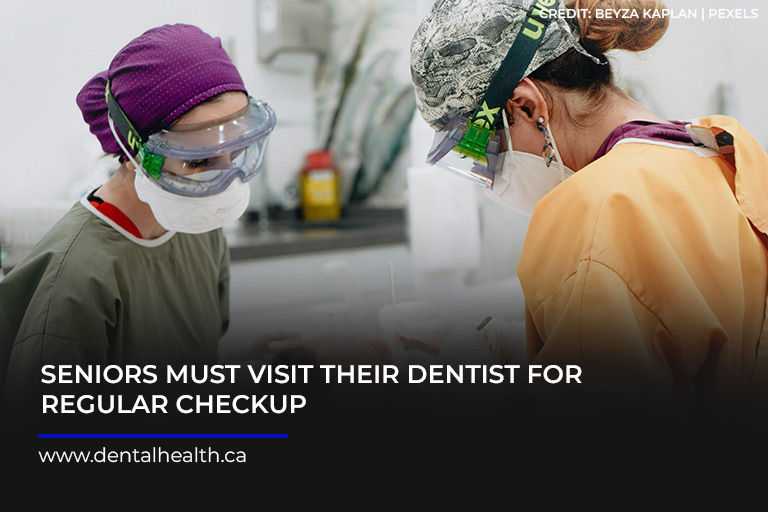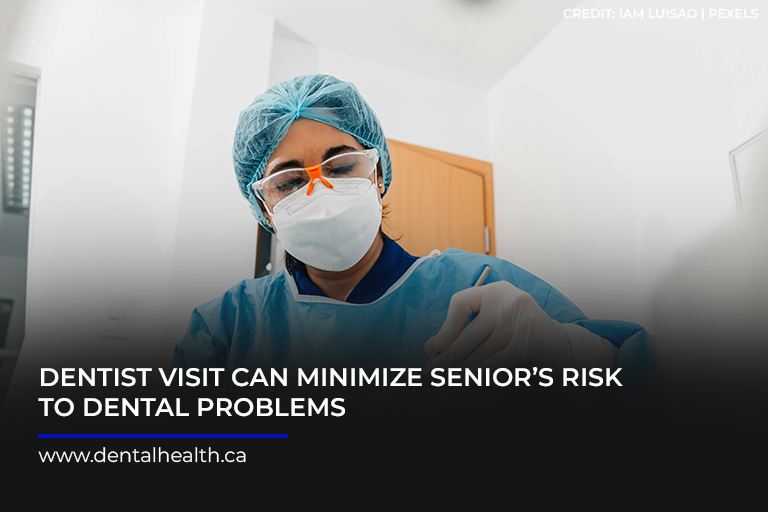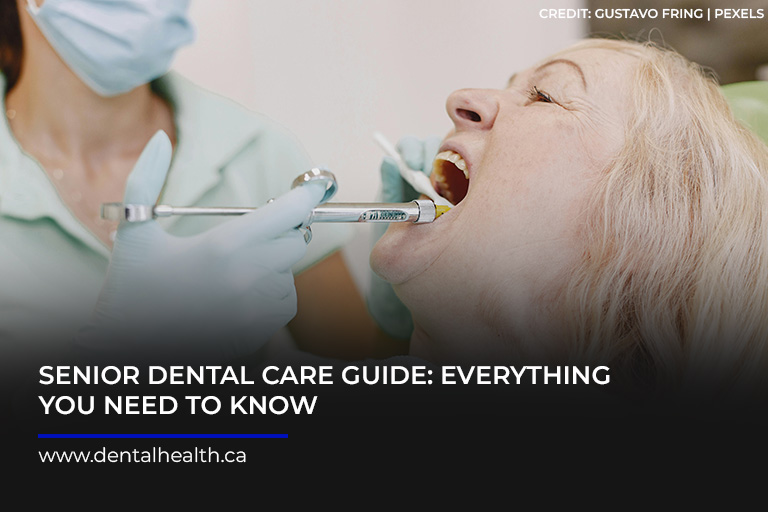Maintaining excellent oral health is essential throughout our lives, but it becomes even more crucial as we enter our golden years. Seniors often face unique challenges to their oral health, making it vital to understand these age-related changes and adopt appropriate care strategies. A healthy mouth contributes significantly to overall well-being, impacting our ability to enjoy nutritious food, speak clearly, and maintain a confident social presence.
The mouth undergoes natural changes with age, such as decreased saliva production and receding gums, which can increase the risk of dental problems. Furthermore, seniors may experience chronic health conditions or take medications that affect oral health. Recognizing the connection between oral health and overall well-being is the first step towards proactive care and a higher quality of life in our senior years.
Common Dental Problems in Seniors
Seniors may experience a range of dental concerns due to age-related changes, medical conditions, and lifestyle factors. Recognizing these common problems is the first step towards effective management and prevention.
- Gum Disease: Gum disease, including gingivitis and periodontitis, is prevalent among seniors and is caused by plaque buildup. It can lead to gum inflammation, recession, and tooth loss. The Canadian Dental Association estimates that 7 out of 10 Canadians will develop gum disease. Maintaining good oral hygiene, including brushing and flossing, is crucial for preventing and managing gum disease. Regular dental checkups allow early detection and professional cleaning to remove tartar.
- Tooth Decay: Tooth decay in seniors is more likely due to factors like receding gums, dry mouth, and decreased dexterity. Receding gums expose the tooth root, making it more vulnerable to decay. Dry mouth reduces saliva production, hindering the mouth’s natural ability to neutralize acids. Good oral hygiene, fluoride toothpaste, and fluoride treatments can help protect against tooth decay in seniors.
- Tooth Loss: Tooth loss, caused by factors like gum disease, decay, and injury, can affect chewing ability, dietary changes, nutritional deficiencies, speech, and self-confidence. Dentistry offers options like dental implants, bridges, and dentures to replace missing teeth and restore oral function. A dentist can help determine the most suitable solution based on individual needs and oral health status.
- Dry Mouth: Seniors frequently experience dry mouth, which is frequently brought on by drugs or health issues. Although saliva is necessary to keep the mouth healthy, not having enough of it can worsen gum disease, tooth decay, and oral infections. Use sugar-free gum or sweets, drink plenty of water, and talk to your doctor about any adverse effects from your medications to help with dry mouth. Dentists may occasionally suggest saliva substitutes or medications to increase saliva production.
- Oral Cancer: The risk of oral cancer increases with age. The Ontario Dental Association estimates that over 5,000 Canadians will be diagnosed with oral cancer. Regular dental checkups are vital as dentists can often detect early signs of oral cancer during routine examinations. Early detection significantly improves treatment outcomes. Avoiding tobacco and excessive alcohol consumption, along with maintaining a healthy lifestyle, can help reduce the risk of oral cancer.
- Sensitive Teeth: Dentin is exposed by gum recession and weakening tooth enamel, which makes people sensitive to hot, cold, or sweet meals and beverages. Certain dietary restrictions may result from this discomfort. To manage tooth sensitivity, use desensitizing toothpaste, reduce acidic foods, and practice good oral hygiene. Dentists may occasionally suggest fluoride treatments or other procedures to deal with underlying issues.
- Root Decay: Root decay, caused by receding gums, exposes teeth’s exposed roots to decay, leading to tooth loss if left untreated. The cementum covering the root surface is less resistant to decay than enamel. Proper brushing, flossing, and regular dental checkups are crucial for preventing and managing root decay. Dentists may recommend fluoride treatments or other preventive measures.
- Denture-Related Issues: Seniors who wear dentures may experience sore spots, slippage, and difficulty eating, impacting their quality of life and causing discomfort. Regular dental checkups are crucial to ensure proper denture fit and address oral health concerns. Dentists can adjust dentures, provide advice on proper care, and address underlying oral health issues contributing to denture-related problems.
Maintaining Good Oral Hygiene

Maintaining good oral hygiene is crucial for maintaining a healthy smile, especially for seniors, as it prevents common dental issues and enhances overall well-being.
- Brushing: Brush your teeth twice a day using a soft-bristled toothbrush and fluoride toothpaste, moving gently in circular motions across all tooth surfaces. An electric toothbrush can help elders clean their teeth more thoroughly. Replace your toothbrush every three to four months, or as soon as the bristles tear.
- Flossing: Daily flossing is essential for removing plaque and food particles from teeth and gum lines. Use a gentle back-and-forth motion between each tooth. If traditional floss is difficult, consider alternatives like interdental brushes, floss holders, or water flossers. These tools can make flossing easier and more comfortable, especially for seniors with arthritis or limited hand mobility.
- Rinsing: To maintain oral health, rinse your mouth with antiseptic mouthwash daily to kill bacteria and freshen breath. Opt for alcohol-free mouthwash to avoid dryness. Therapeutic mouthwashes can address oral health issues like gum disease or tooth sensitivity. Consult your dentist for the best mouthwash.
- Hydration: Drink plenty of water throughout the day to stay hydrated and promote saliva production. Saliva helps wash away food particles and neutralize acids, protecting your teeth and gums. Staying hydrated is especially important for seniors who experience dry mouth. Carry a water bottle with you and sip on it throughout the day.
- Healthy Diet: To prevent tooth decay, avoid sugary snacks and drinks. Instead, consume a balanced diet rich in fruits, vegetables, and whole grains. Calcium and vitamin D are crucial for bone and tooth health, with dairy products, leafy greens, and fortified foods being good sources. Vitamin D can be obtained from sunlight exposure and certain foods.
- Regular Dental Checkups: Regular dental checkups and cleanings are essential for detecting and addressing potential issues early on, preventing more severe problems. Ideally, a checkup should occur at least once every six months, depending on individual needs. Dentists can also offer personalized advice on oral hygiene practices and recommend preventive measures tailored to individual needs.
- Denture Care: Wearing dentures requires daily cleaning with a denture cleanser and a soft-bristled brush. Remove them at night and soak them in a denture-cleaning solution to remove food debris, bacteria, and stains. Maintain good oral hygiene by cleaning gums and tongue, and massage gums regularly to stimulate blood circulation and healthy tissue.
Dental Treatments and Procedures for Seniors
Several dental treatments are specifically beneficial for seniors. These procedures can help restore oral health and improve quality of life.
- Dental Implants: Dental implants are a popular solution for tooth loss in seniors. Implants are a long-lasting option for replacing missing teeth, helping maintain jaw strength and preventing bone loss. They also offer a more natural look and function compared to dentures.
- Dentures: Full or partial dentures are often necessary for seniors who have lost multiple teeth. Well-fitted dentures improve speech, chewing, and appearance. It is essential to have them professionally fitted to avoid discomfort or irritation.
- Root Canal Treatment: A root canal may be needed if the nerve of a tooth becomes infected or damaged. This procedure can save a tooth that would otherwise need to be extracted, preserving the natural structure of the mouth.
- Crowns and Bridges: Crowns are used to strengthen weakened teeth or to restore a tooth after a root canal. Bridges can replace one or more missing teeth by anchoring to adjacent natural teeth. Both treatments are important in maintaining oral function.
- Gum Treatments: Gum disease can often be managed with professional cleanings and scaling. More advanced cases may require surgical intervention, including gum grafts to restore receding gums. Regular cleanings are critical to prevent further damage.
- Oral Cancer Screenings: Given the higher risk of oral cancer in seniors, regular screenings during dental visits are recommended. Dentists look for signs such as unusual lumps or sores, which could indicate early-stage oral cancer.
Visiting the Dentist

Regular dental visits are essential for seniors to maintain good oral health. These visits provide an opportunity to catch potential problems early and ensure proper treatment.
- Professional Cleaning: Even with good oral hygiene at home, professional dental cleanings remove plaque and tartar that can lead to gum disease and tooth decay. Dentists recommend professional cleanings at least twice a year for seniors.
- Monitoring for Oral Cancer: Early detection of oral cancer significantly increases the chances of successful treatment. During routine visits, the dentist will check for any signs of oral cancer, such as unexplained sores, lumps, or patches in the mouth.
- Dentures Adjustments: Seniors who wear dentures may need adjustments over time as the shape of their gums changes. Regular check-ups ensure that dentures fit properly and remain comfortable, preventing sores or irritation.
- Check for Cavities: Even if seniors have no natural teeth, they are still at risk of cavities, especially on exposed root surfaces. Regular check-ups allow the dentist to monitor for any new or progressing decay.
- Gum Health Evaluation: A dentist will check the gums for signs of disease, recession, or infection during a visit. Addressing gum issues early helps prevent more serious complications, such as tooth loss or infection.
Prioritizing oral health in our senior years is an investment in our overall well-being. By understanding the common dental problems faced by seniors and adopting a proactive approach to oral hygiene, we can maintain healthy smiles and enjoy a better quality of life. Regular dental visits are essential for prevention, early detection, and personalized care. Remember, a healthy mouth contributes to a healthy body and a happy life.
For all your senior dental care needs, contact Kingsway Family Dentistry at (905) 563-4001. We provide compassionate and comprehensive dental care for patients of all ages.

